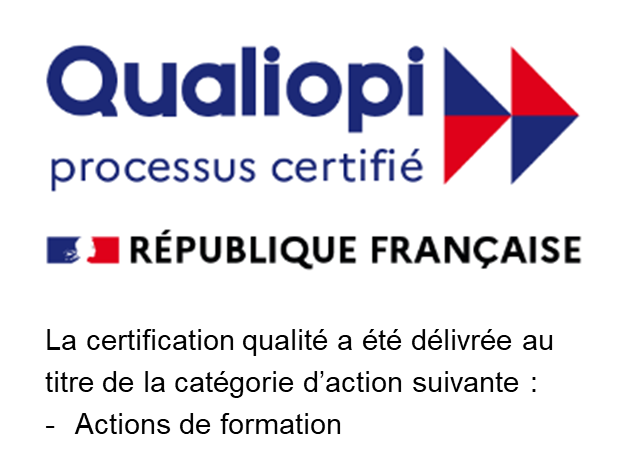Intercultural Training Initiatives for Eramet’s International Workforce

NetExpat recently interviewed two key members of the Eramet Group Team about their intercultural training initiatives for their international workforce.

Simon Boubault
Group International Mobility Manager
Eramet Group

Natascha de Saint-Jean
Head of Learning & Development
Eramet Group
What made you decide to implement intercultural training?
Natascha: We have two groups receiving intercultural training: expatriates and multicultural teams or their managers. Eramet has nearly 80 nationalities and operates across five continents! Therefore, our projects bring together people worldwide, both expatriates and multicultural teams, necessitating effective intercultural collaboration.
Simon: These international projects align with Eramet's recent strategy shift to focus on mining activities. Consequently, our teams, including those at our French headquarters, now largely operate internationally. This has increased the need for intercultural teams and expatriate movements, prompting us to collaborate with NetExpat for training.
Was this a proactive measure?
Natascha: It's a mix of proactive efforts and responding to expressed needs. We understand that cultural differences can have an impact on work dynamics. Cultural diversity can enrich exchanges when properly understood. Training plays a key role in strengthening mutual understanding, improving the quality of interactions and increasing team productivity. Misunderstandings often stem from cultural issues, so training helps mitigate these and improves team interactions and productivity.
Interviewer: How are people reacting to the training?
Simon: The feedback from expatriates and their families, especially spouses, has been very positive. The training prepares them for the cultural differences they'll face, which is crucial for a successful expatriation. We’ve made this training a standard part of our policy for expatriates and their families.
Natascha: Teams are eager to participate. The training sessions are practical, allowing participants to share experiences and learn from each other. This helps them understand cultural differences and how to adapt their work styles accordingly.
Is having an experienced consultant important?
Natascha: Yes, an outside consultant with experience in international work and expertise of various cultures is vital. In addition to the consultant, NetExpat often provides speakers with strong intercultural business experiences, adding value to the sessions.
Any surprises during the training?
Natascha: In some regions, we have adopted a strategy of first working with distinct cultural groups, then bringing them together to explore solutions together. This method has paid off, giving participants a trusted space to express their difficulties. Once the issues have been identified, they can progress towards finding solutions. Participants from different cultures exchange ideas in a very positive way and find solutions together.
Simon: The diverse cultural backgrounds at our sites lead to rich exchanges during training. Participants realize the benefits of applying intercultural skills in their work.
How do individuals benefit from the training?
Natascha: Participants become more aware of cultural differences, helping them navigate intercultural work environments. It’s about understanding that people see the world differently and finding ways to interact more effectively.
Simon: We’re hiring globally and building diverse teams, so this training helps them work well together. It’s a long-term effort to ensure cohesive, effective teams.
What’s the impact of the training on performance and ambiance?
Natascha: Although difficult to measure precisely, feedback from participants indicates better mutual understanding, more constructive interactions and better team cohesion. This training approach therefore brings significant benefits.
Simon: Due to the recent rollout, we lack figures but believe in the positive impact. The initial feedback received is really encouraging. Face-to-face sessions, especially, help build networks and understanding among diverse participants.
How important is supporting the partner of the expatriate?
Simon: Family integration is crucial for successful expatriation. Training helps families understand and adapt to cultural differences, preventing failures in expatriation missions. Our policy now mandates intercultural training for expatriates and their families.
Natascha: Intercultural training is essential for everyone. Interculturalism isn’t automatic; it requires learning and effort.
Simon: Intercultural awareness is indeed key for successful international collaboration. It’s not just a must-have but an integral part of our HR strategy.
Natascha: Everyone, from top managers to individual contributors, benefits from this training.
Final thoughts on the importance of intercultural training?
Natascha: Expatriates are constantly in a multicultural environment, so preparation is essential for their well-being and effectiveness.
Simon: Intercultural training is vital for our international projects and team performance. It’s part of our strategy to support our diverse, global workforce.
Natascha: Intercultural training enhances self-awareness and reduces judgment, improving teamwork. It’s important for everyone to understand and address their unconscious biases. Moreover, Intercultural awareness is vital for performance. Misunderstandings due to cultural differences can lead to delays and conflicts, affecting project outcomes.
Simon: Successful expatriation and teamwork depend on good preparation and cultural understanding. Intercultural training is a key factor of success for our global operations and projects.
Share this post














